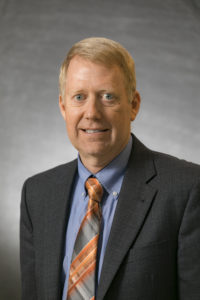Speakers, Authors, Attendees
is a Principal Member of Technical Staff at Sandia National Laboratories. Jay is the co-convener of the SunSpec DER Cybersecurity Workgroup and leads several multidisciplinary research projects focused on power system control, secure electric vehicle charging, and renewable energy cybersecurity. Jay has five patents and authored over 100 technical publications. Jay received a B.S. in Mechanical Engineering from the University of Missouri-Rolla in 2006 and a M.S. in Mechanical Engineering from the Georgia Institute of Technology in 2009.
received a B.S.E.E from Penn State in 1984 and an M.S./Ph.D in EE from the University of Pennsylvania in 1987/1991. From 1984 to 1991, he was with GE Aerospace. Since 1991, he has been at Lehigh University. His research interests include signal processing for cyber security, smart grid, communications, sensor networking, radar and sensor processing. He was an AE for IEEE Trans. on Signal Processing and for IEEE Communications Letters. He has edited special issues for IEEE Trans. on Signal Processing, IEEE Journal of Selected Topics in Signal Processing and IEEE Journal on Selected Areas in Communications. He was a member of the SAM Technical Committee (TC) of the IEEE Signal Processing Society. He was a member of the Signal Processing for Communications TC of the IEEE Signal Processing Society and is a member of the Communications Theory TC of the IEEE Communication Society. He was on the awards Committee of the IEEE Communication Society. Dr. Blum is a Fellow of the IEEE, an IEEE Signal Processing Society Distinguished Lecturer (twice), an IEEE Third Millennium Medal winner, a member of Eta Kappa Nu and Sigma Xi, and holds several patents. He was awarded an ONR Young Investigator Award and an NSFResearch Initiation Award.
received the Bachelor’s, M.S., and Ph.D. degrees in electrical engineering from Georgia Tech. He worked at Oak Ridge National Laboratory (ORNL), Oak Ridge, TN, from 1991 until 1999 on electric distribution and power quality projects. He joined the Department of Electrical and Computer Engineering, The University of Tennessee, Knoxville, in 1999, and is currently the Min H. Kao Professor in Electrical Engineering and Computer Science, The University of Tennessee. He is a founding member for the National Science Foundation/Department of Energy Engineering Research Center, CURENT (Center for Ultra-wide-area Resilient Electric Energy Transmission Networks). He is also a part-time Senior Research Engineer with the Power Electronics and Electric Machinery Research Center, ORNL.
Dr. Tolbert is a Fellow of the IEEE and a Registered Professional Engineer in the state of Tennessee. He was the recipient of the 2001 IEEE Industry Applications Society Outstanding Young Member Award, and six prize paper awards from the IEEE Industry Applications Society and IEEE Power Electronics Society. He was an Associate Editor of the IEEE Transactions on Power Electronics from 2007 to 2013. He was the Paper Review Chair for the Industry Power Converter Committee of the IEEE Industry Applications Society from 2014 to 2017. He conducts research in the application of wide bandgap devices to data center power supplies, multilevel converters, microgrids, medium voltage utility applications, and electric vehicles.
is a principle research engineer at INL’s Electric Vehicle Infrastructure Laboratory (EVIL). His research focuses upon high power EV charging infrastructure evaluation (both conductive and wireless charging), integration with the grid, and cybersecurity. Barney has over twenty years of experience with electrified vehicle technologies and is a graduate of the Univ. of California, Davis.
 is a Senior Member of IEEE, is an Associate Professor at the University of North Carolina in Charlotte. He serves as Assistant Director of the Energy Production & Infrastructure Center (EPIC), a research center founded by industry champions such as Duke Energy, EPRI, and Westinghouse at UNCC.
is a Senior Member of IEEE, is an Associate Professor at the University of North Carolina in Charlotte. He serves as Assistant Director of the Energy Production & Infrastructure Center (EPIC), a research center founded by industry champions such as Duke Energy, EPRI, and Westinghouse at UNCC.
Named as an e4 Carolinas Emerging Leader in Energy in 2015, Dr. Manjrekar has led technology and innovation teams in the areas of energy and power systems for more than 15 years. Prior to joining academia in 2012, he worked as Vice President of Global Research and Innovation at Vestas (wind turbine company), and previously held various leadership positions at Siemens, Eaton and ABB.
Dr. Manjrekar holds 10 US and international patents, published over 60 journal and conference papers and received multiple IEEE prize paper awards. He has served on various task forces, including High Mega-Watt Leadership Team of National Institute of Standards and Technology, the Smart Grid Task Force of North American Electric Reliability Corporation, IEEE Standard P2030, and on review panels for ARPA-E, US Department of Energy, and the National Science Foundation.
Dr. Madhav Manjrekar received his B.E. degree from Government College of Engineering, Pune, India, his M.Tech. from Indian Institute of Science, Bangalore, India, M.S. from Montana State University, Bozeman, Montana, and Ph.D. from University of Wisconsin, Madison, Wisconsin, in 1993, 1995, 1997, and 1999 respectively.
 is a Technology Development Manager with Duke Energy working in the Emerging Technology Office. In this role, he provides leadership on a portfolio of technologies to support the Future Grid. He is a founding technologist in the development of the OpenFMB platform. He is currently working on Grid distributed applications, microgrids, DC services and metering, and Grid edge analytics, with a focus on Cybersecurity (IIoT – PKI).
is a Technology Development Manager with Duke Energy working in the Emerging Technology Office. In this role, he provides leadership on a portfolio of technologies to support the Future Grid. He is a founding technologist in the development of the OpenFMB platform. He is currently working on Grid distributed applications, microgrids, DC services and metering, and Grid edge analytics, with a focus on Cybersecurity (IIoT – PKI).
Mr. Lawrence has 40 years of experience in the energy industry. He worked in R&D and IT management for electric metering, transformer, and switchgear product manufacturing. His roles included embedded systems development, engineering management, global engineering information systems, manufacturing execution (MES) and scheduling systems (ERP), product lifecycle management (PLM), and IT management. A native of Portsmouth, VA., Mr. Lawrence earned a Bachelor of Science degree in Computer Science from Virginia Polytechnic Institute and has been awarded six US Patents.
 is a staff scientist and grid cybersecurity program lead at Argonne National Laboratory. She is responsible for coordinating the power systems cybersecurity portfolio, interfacing with crosscutting programs and federal sponsors. She manages research projects for cybersecurity within power grid control environments and is a co-investigator developing dynamic phononic metamaterials for energy efficiency applications. Prior to this role, Clarisse Kim served on the leadership team of the Argonne Resilient Infrastructure Initiative and was a Science & Technology Policy Fellow of the National Academies of Science, Engineering, and Medicine in Washington, D.C. Her original training is in experimental condensed matter physics, with a Ph.D. in physics from the University of Chicago and a BA in physics and mathematics from Columbia University in the city of New York.
is a staff scientist and grid cybersecurity program lead at Argonne National Laboratory. She is responsible for coordinating the power systems cybersecurity portfolio, interfacing with crosscutting programs and federal sponsors. She manages research projects for cybersecurity within power grid control environments and is a co-investigator developing dynamic phononic metamaterials for energy efficiency applications. Prior to this role, Clarisse Kim served on the leadership team of the Argonne Resilient Infrastructure Initiative and was a Science & Technology Policy Fellow of the National Academies of Science, Engineering, and Medicine in Washington, D.C. Her original training is in experimental condensed matter physics, with a Ph.D. in physics from the University of Chicago and a BA in physics and mathematics from Columbia University in the city of New York.
 is an embedded cybersecurity SME by training, and currently a Principal at DTLLC, serving the public and private transportation and energy sectors by providing cybersecurity services and technologies designed to enable full lifecycle cybersecurity risk management for embedded vehicle and vehicle charging systems. Duncan is currently a performer in DOE research studying XFC cybersecurity and has published tools for automated exploitation of embedded systems over CAN BUS and DSRC/V2X.
is an embedded cybersecurity SME by training, and currently a Principal at DTLLC, serving the public and private transportation and energy sectors by providing cybersecurity services and technologies designed to enable full lifecycle cybersecurity risk management for embedded vehicle and vehicle charging systems. Duncan is currently a performer in DOE research studying XFC cybersecurity and has published tools for automated exploitation of embedded systems over CAN BUS and DSRC/V2X.
received the B.S. (summa cum laude) and M. S. degrees in electrical engineering from the University of Arkansas in 1985 and 1986, respectively, and the Ph.D. degree from the Georgia Institute of Technology in 1990. He joined Analogy in 1990 where he focused on semiconductor device modeling and the research and development of HDL-based modeling tools and techniques. Besides modeling, his interests include analog and mixed-signal IC design and power electronics. In 1996, Dr. Mantooth was named Distinguished Member of Technical Staff at Analogy (now owned by Synopsys).
In 1998, he joined the faculty of the Department of Electrical Engineering at the University of Arkansas, Fayetteville, as an Associate Professor. He has received numerous teaching, service, and research awards. He was selected to the Georgia Tech Council of Outstanding Young Engineering Alumni in 2002, and the Arkansas Academy of Electrical Engineers in 2006. Dr. Mantooth was promoted to his present rank of Distinguished Professor in the Electrical Engineering Department in 2011. In 2003, he co-founded Lynguent, an EDA company focused on modeling and simulation tools.
Dr. Mantooth helped establish the National Center for Reliable Electric Power Transmission (NCREPT) at the UA in 2005, for which he serves as director. In 2006, he was selected as the inaugural holder of the 21st Century Endowed Chair in Mixed-Signal IC Design and CAD. Dr. Mantooth has published over 200 refereed articles on modeling and IC design. He holds patents on software architecture and algorithms for modeling tools and has others pending. He is co-author of three books and has served on several technical program committees for IEEE conferences.
He is Past President of the IEEE Power Electronics Society. Dr. Mantooth is a Fellow of IEEE, a member of Tau Beta Pi and Eta Kappa Nu, and registered professional engineer in Arkansas. Professor Mantooth serves as the Executive Director for NCREPT and GRAPES as well as two of its constitutive centers of excellence: the NSF I/UCRC on GRid-connected Advanced Power Electronic Systems (GRAPES) and the NSF EPSCoR Vertically-Integrated Center on Transformative Energy Research (VICTER). He also serves as the Director of the NSF EPSCoR GREEN Center for Nanoplasmonic Solar Cell Research.
 is presently working as Assistant Professor of Electrical and Computer Engineering at University of North Carolina, Charlotte. Dr. Saqib earned her Ph.D. and M.S. degrees in Electrical and Computer Engineering from the University of New Mexico (UNM). Her current research interests include IoT security, hardware security and trust, supply chain risk management and security, physical unclonable functions (PUF) based authentication, high-performance computing and hardware accelerators design using FPGAs for small and resource-constrained embedded electronic devices.
is presently working as Assistant Professor of Electrical and Computer Engineering at University of North Carolina, Charlotte. Dr. Saqib earned her Ph.D. and M.S. degrees in Electrical and Computer Engineering from the University of New Mexico (UNM). Her current research interests include IoT security, hardware security and trust, supply chain risk management and security, physical unclonable functions (PUF) based authentication, high-performance computing and hardware accelerators design using FPGAs for small and resource-constrained embedded electronic devices.
Dr. Fareena Saqib has several active NSF and Industry grants in the areas of Cybersecurity, hardware security and trust relating to IoTs. She has published multiple peer-reviewed journal articles and refereed conference papers at top conferences e.g. HOST, ICCAD, VNC, ETS, TVLSI, MDPI Cryptography, Trans. on Computers etc. She has also served as a Guest Editor for the MDPI Cryptography Journal. She is a member on technical program committees of leading conferences and workshops. She is also the Program Chair of a workshop for women in hardware systems security (WISE). She is a senior member of IEEE.
Mohammad Ashiqur “Ashiq” Rahman
is an Assistant Professor in the Department of Electrical and Computer Engineering at Florida International University. He obtained the Ph.D. degree in computing and information systems from the University of North Carolina at Charlotte (UNC Charlotte) in 2015. Previously, he received the BS and MS degrees in computer science and engineering from Bangladesh University of Engineering and Technology (BUET), Dhaka, in 2004 and 2007, respectively. Dr. Rahman’s primary research interest covers a wide area of computer networks and communications, within both cyber and cyber-physical systems. His research focus primarily includes computer and information security, risk analysis and security hardening, secure and dependable resource allocation, and distributed computing. He is a recipient of the prestigious NSF CRII award for his research on smart grid security analysis. Dr. Rahman coauthored a book and published over 50 peer-reviewed journal and conference papers. He served on the technical program and organization committees for various IEEE and ACM conferences.
manages the Grid and Infrastructure Research and Development Activities for Vehicle Electrification within the Department of Energy’s Vehicle Technologies Office. His responsibilities include developing and implementing plans for R&D on: eXtreme Fast Charging; Wireless Charging; minimize grid impacts of charging; Cybersecurity for vehicle charging; and codes and standards for charging. Previously, Lee managed the DOE’s Vehicle Systems Program and the $400 million ARRA Transportation Electrification program. Lee has been at the DOE for 24 years and has worked on advanced technology vehicle initiatives for the past 27 years.
 is an Assistant Professor in ECE at Virginia Tech. Dr. Gerdes’ work focuses on designing resilient computing systems, with an emphasis on cyber-physical systems operating in adversarial environments and leveraging the physical layer for defensive and offensive purposes. He is the principal investigator on NSF and DOE projects that examine the security and privacy of cooperative, automated vehicles; unmanned aerial systems (UAS); and next-generation battery electric vehicles and chargers. Recent research topics have included: use of intentional electromagnetic interference for the physical-layer manipulation of sensors and actuators, including radar and electric motors; identification and tracking of cognitive radios; attack detection and prevention for automotive systems; electromagnetic side-channel analysis for code-change detection; machine learning in adversarial environments; and detection of malicious logic in untrusted, integrated circuit designs.
is an Assistant Professor in ECE at Virginia Tech. Dr. Gerdes’ work focuses on designing resilient computing systems, with an emphasis on cyber-physical systems operating in adversarial environments and leveraging the physical layer for defensive and offensive purposes. He is the principal investigator on NSF and DOE projects that examine the security and privacy of cooperative, automated vehicles; unmanned aerial systems (UAS); and next-generation battery electric vehicles and chargers. Recent research topics have included: use of intentional electromagnetic interference for the physical-layer manipulation of sensors and actuators, including radar and electric motors; identification and tracking of cognitive radios; attack detection and prevention for automotive systems; electromagnetic side-channel analysis for code-change detection; machine learning in adversarial environments; and detection of malicious logic in untrusted, integrated circuit designs.






